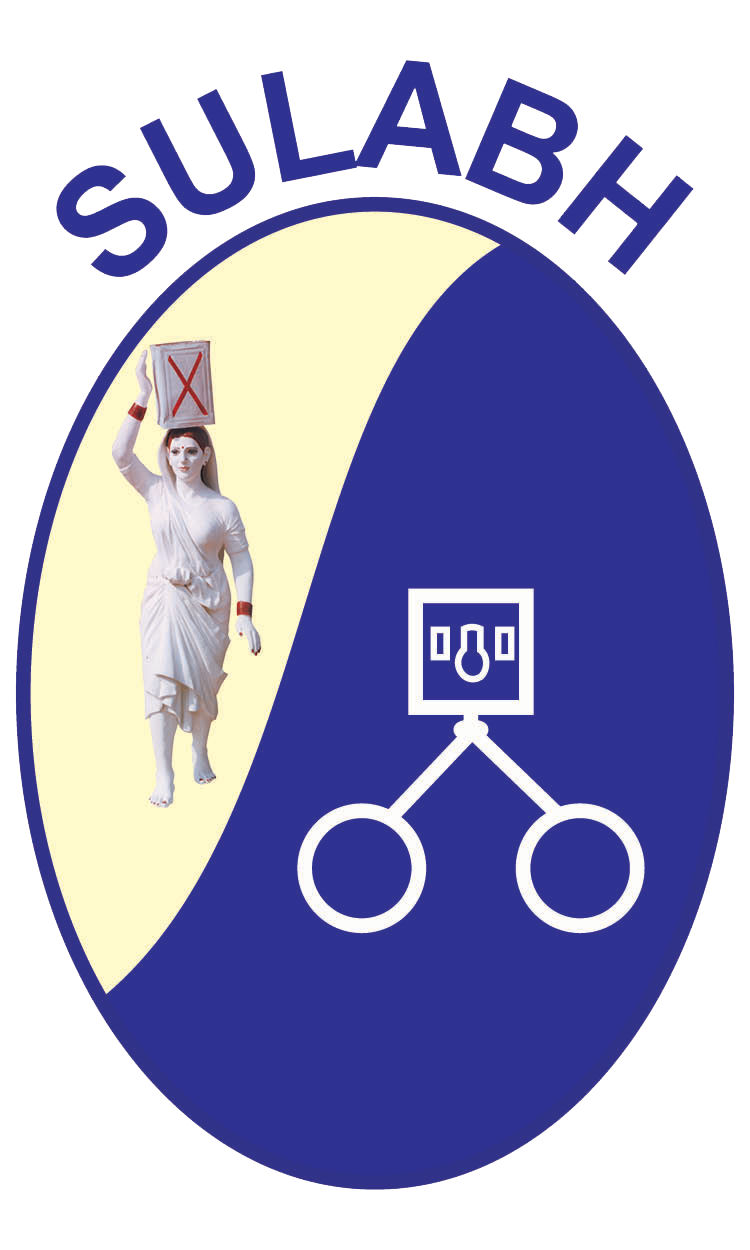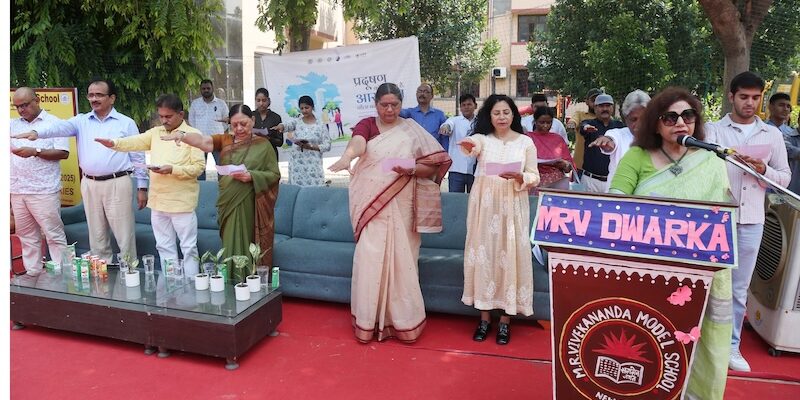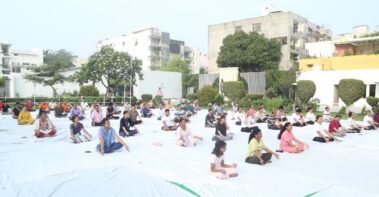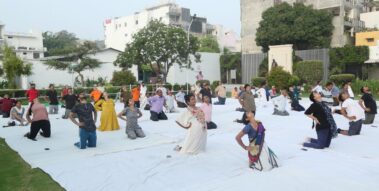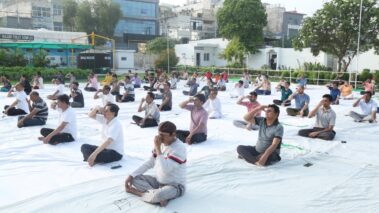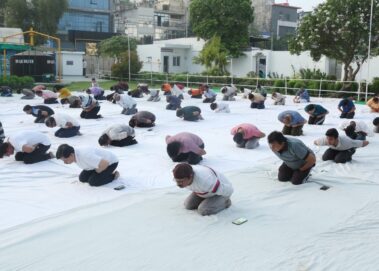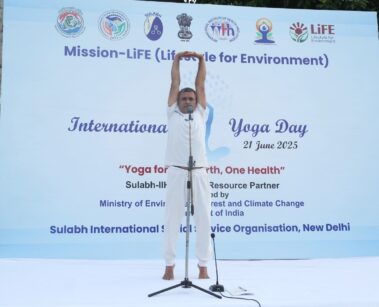On July 4, 2025, Sulabh International, in collaboration with IIHH EIACP Resource Partner under the aegis of the Ministry of Environment, Forest and Climate Change, Government of India, organized a Micro Forest Plantation and Sensitization Programme on the theme “Breath of Change: Clean Air for Blue Skies” at M R Vivekananda Model School, Sector 13, Dwarka, New Delhi.
The event witnessed the enthusiastic participation of over 600 students, teachers, officials, and members of the local community. The programme commenced with a welcome address by the school’s senior leadership and a ceremonial presentation of potted plants to dignitaries.
Distinguished guests included Hon’ble Shri Shyam Kumar Mishra (Ex-Councilor, Mohan Garden), Ms. Bhawna Babbar (Manager), Ms. Kusum Ahluwalia (Director), Ms. Alka Sinha (Principal), and Mr. Piyush Kwatra (Field Director) of MRV School. The Chief Guest, Shri Shyam Kumar Mishra, applauded the initiative and encouraged students to become ambassadors for clean air and environmental sustainability.
A moving poetry recital by students of Sulabh Public School highlighted the urgency of addressing air pollution and adopting greener lifestyles. Dr Namita Mathur, Coordinator, IIHH EIACP RP, motivated the students to take the lead in environmental stewardship and climate action.
As part of the drive, saplings of native species such as Neem, Peepal, Jamun, Gulmohar, and Amaltas were planted. These trees form part of a dense, biodiverse micro-forest—a sustainable green infrastructure solution designed to mimic natural forests in a compact space. Micro-forests not only promote faster growth and enhance local biodiversity, but also offer long-term environmental, health, and community benefits.
Some of the key advantages of micro-forests include:
- Improved air quality and carbon absorption, acting as powerful carbon sinks.
- Urban cooling through increased canopy cover, mitigating heat island effects.
- Enhanced soil and water health, with better stormwater management and erosion control.
- Noise reduction and restoration of native ecosystems.
- Low maintenance and cost-effective over time once established.
- Creation of vibrant, green spaces that support mental well-being and community engagement, especially in urban areas.
We sincerely thank M R Vivekananda Model School for providing the space and joining hands with us in this important effort to establish a micro forest on their campus. Their wholehearted support and collaboration were instrumental in making this green initiative a success.
The programme concluded with a Clean Air Pledge, where all participants committed to environment-friendly practices such as using public transport, conserving energy and water, minimizing plastic use, and planting more trees. The symbolic plantation by dignitaries served as a shared commitment to a greener, cleaner, and more resilient future.
